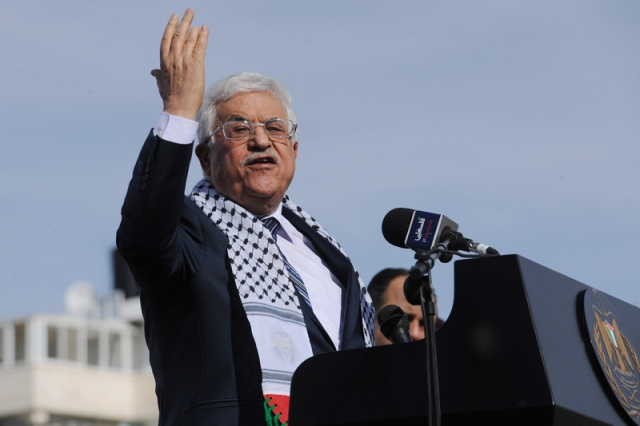In a move indicative of shifting diplomatic relations in the Middle East, a high-ranking Palestinian delegation is slated to land in Saudi Arabia on Tuesday. The delegation is expected to hold significant talks with Brett McGurk, a senior official from the U.S. National Security Council. The unprecedented gathering aims to explore the contours of normalization between Israel and Saudi Arabia, examining the parameters under which the Palestinians could benefit from such an accord.
This meeting holds historic significance as it is the first occasion wherein an American delegation will sit across the table from a Palestinian delegation in Saudi Arabian soil specifically to discuss issues pertaining to Israel-Saudi normalization. It not only marks a new chapter in Middle Eastern diplomacy but also exemplifies the changing role of Saudi Arabia as a major player in Arab-Israeli relations.
An anonymous Palestinian official informed the UK-based news source, Al-Araby Al-Jadeed, that the Palestinian leadership remains cautiously optimistic. They anticipate that Saudi Arabia will not hastily jump into normalization agreements with Israel without securing a political payoff that fortifies its own geopolitical stance, with the explicit endorsement of the Palestinian side.
The Palestinian Authority has set a list of conditions to support a normalization deal between #Israel and #Saudi Arabia, including more control over certain areas of the occupied West Bank and the reopening of the US consulate in Jerusalem. #Palestine pic.twitter.com/Ois5zRdXsp
— ARABIA POST (@ArabiaPost) September 1, 2023
The crux of the Palestinian proposal hinges on the comprehensive Arab Peace Initiative, which stipulates that Arab nations would formally recognize Israel in exchange for a complete Israeli withdrawal from territories seized in the aftermath of the Six-Day War in 1967. In addition to this, the Palestinians are ardently lobbying to acquire full United Nations membership status.
Beyond these primary issues, the Palestinian delegation is set to present other substantive demands, which would include the reestablishment of the American consulate in East Jerusalem and the reopening of Fatah offices within the United States. "These are commitments that the Biden administration made to the Palestinian leadership two years ago but has yet to fulfill," the official pointed out.
A delegation of top U.S. officials is slated to visit Saudi Arabia this week, hoping to finalize Saudi-Israel normalization. Their visit will overlap with a Palestinian delegation
— i24NEWS English (@i24NEWS_EN) September 4, 2023
Former Ambassador Danny Ayalon shares insight into what is needed for this deal to come to fruition pic.twitter.com/sh1v9t67ux
Furthermore, the delegation is expected to reiterate demands reminiscent of previous confidence-building measures that were proposed to the Biden administration for rejuvenating relations with Israel. These demands were also conveyed by Palestinian Authority President Mahmoud Abbas during his meeting with then Israeli Defense Minister Benny Gantz, two years prior. These include the cessation of Israeli settlement expansion, the discontinuation of de facto annexation of Palestinian lands, the halting of demolitions of Palestinian homes, and maintaining the status quo at revered sites like the Al-Aqsa Mosque in Jerusalem.
"The Palestinian official who spoke to The Times of Israel expressed frustration over the US reaction to Ramallah’s proposals. 'They’re willing to discuss significant gestures for Saudi Arabia, but all they say to our proposals is, 'That’s not possible.''"https://t.co/gijDflYSfV
— Vivian Nereim (@viviannereim) August 31, 2023
Heading the Palestinian delegation will be Hussein al-Sheikh, the Secretary-General of Fatah's Executive Committee. Other prominent members include Majed Faraj, Chief of the Palestinian Intelligence Service, and Majdi Khaldi, diplomatic affairs adviser to Mahmoud Abbas. Interestingly, the same delegation had a meeting last week with Saudi ambassador to Jordan and the Palestinian Authority, Nayef bin Bandar Al Sudairi, in the Jordanian capital of Amman.
The Wall Street Journal had reported that Saudi authorities, as well as senior Palestinian officials, indicated that the Kingdom is contemplating the renewal of financial support to the Palestinian Authority. This is perceived as a genuine effort to surmount the barriers to formalizing diplomatic relations with Israel. By securing Abbas's support, Saudi Arabia aims to lend broader legitimacy to any ensuing agreements, thereby neutralizing any criticism that may portray the Kingdom as merely furthering Israeli objectives.
Brett McGurk, President Biden's senior Middle East adviser, is expected to travel to Saudi Arabia this week to meet with senior Palestinian officials.#US #SaudiArabia #Palestine https://t.co/iCGDnVhoqY pic.twitter.com/jN7Jmt5KMt
— MSN (@MSN) September 4, 2023
In summary, these unfolding diplomatic interactions could potentially serve as a linchpin for not only Saudi-Israeli relations but also have far-reaching implications for the broader Arab-Israeli conflict. While optimism is cautiously held, the conversations that unfold in the meeting rooms of Riyadh could very well write a new chapter in Middle East diplomacy.


